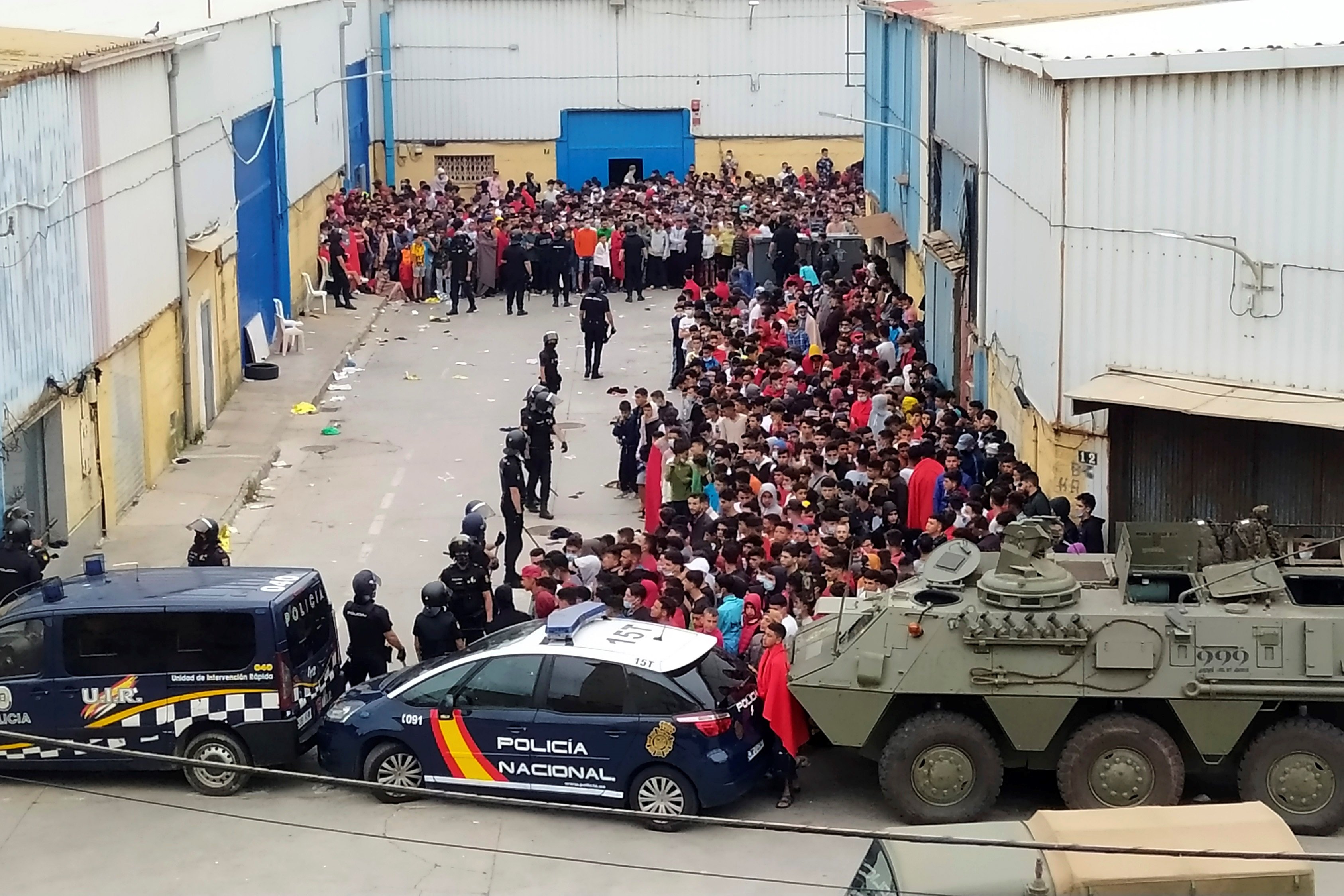A lot has changed since the action taken by Pedro Sánchez as he became Spanish prime minister in 2018: the symbolic welcoming of the Mediterranean migrant rescue ship Aquarius. Between then and now, far-right Vox has boomed and today the approach is radically different as a migration crisis has suddenly mushroomed in Ceuta. In response the Spanish government has militarized its autonomous North African city, which borders Morocco, and in record time has already expelled at least 2,700 "irregular" migrants. The prime minister, prior to taking a plane at midday to visit both of Spain's African enclaves, Ceuta and Melilla, promised all the "firmness" that is necessary to protect their populations. In the early hours of the morning, he had already cancelled an official trip to Paris.
Sánchez delivered an institutional statement, without taking questions, after this morning's cabinet meeting. He had previously made all sorts of contacts, from conversations with king Felipe VI and opposition leader Pablo Casado to calls to European authorities such as EU foreign affairs chief Josep Borrell and European Council president Charles Michel. In his speech, the Spanish PM warned that "this sudden arrival of irregular migrants is a serious crisis for Spain and Europe." He addressed all Spaniards, especially those living in Ceuta, saying that "we will restore order as quickly as possible" and "we will be firm in the face of any challenge, any eventuality and under any circumstances." He highlighted the deployment of the army and the strengthening of the National Police and Civil Guard contingents with the arrival of 200 more officers, in addition to the 1,100 already present in the two autonomous cities.
In this context, Pedro Sánchez made it clear that his "priority" right now is to "guarantee control of traffic at the border, to provide all the necessary means for the humanitarian crisis and proceed with the immediate return of those who have entered irregularly”. He repeated this: the "immediate return of all irregular migrants" in accordance with the agreements signed with Morocco. In fact, as interior minister Fernando Grande-Marlaska had earlier stated, at least 2,700 migrants have already been deported out of the 6,000 who have entered in the last two days, large numbers of them by swimming. Among these are 1,500 minors, whom Marlaska has assured will be considered on a case-by-case basis in compliance with Spanish and international law.
Spanish interior minister Marlaska: "This is an extraordinary situation and we have activated the armed forces." "We are going to continue with these efforts for as long as necessary".
The prime minister went far beyond the migration crisis, assuring that "the integrity of Ceuta as part of the Spanish nation, its security and the tranquility of our compatriots are guaranteed by the Spanish government through all the means it has available". And he addressed the Moroccan authorities: "My desire is to further strengthen friendly relations with our Moroccan neighbours," but this cooperation "must always be based on respect of our shared borders."
Xenophobic speeches
In the press conference after the Spanish cabinet meeting, government spokesperson María Jesús Montero also stressed the need to reject "xenophobic messages" that may have been disseminated under the pretext of this migration crisis, without explicitly mentioning extreme-right Vox. She stated that these are messages "that seek to criminalize migrants or associate them with criminal activities." For this reason, she demanded that other parties show "responsibility, prudence and a sense of state so as not to give rise to tension". Spanish foreign minister Gonzáles Laia has maintained informal contacts with several groups in this regard.
Despite repeated questions about the stay in a Spanish hospital of Brahim Gali, leader of the Western Sahara liberation group Polisario Front, which could have provoked the response of the Moroccan authorities, both Montero and Marlaska avoided the issue.
Main image: Spanish police and soldiers guarding hundreds of migrants after their arrival in Ceuta / EFE

